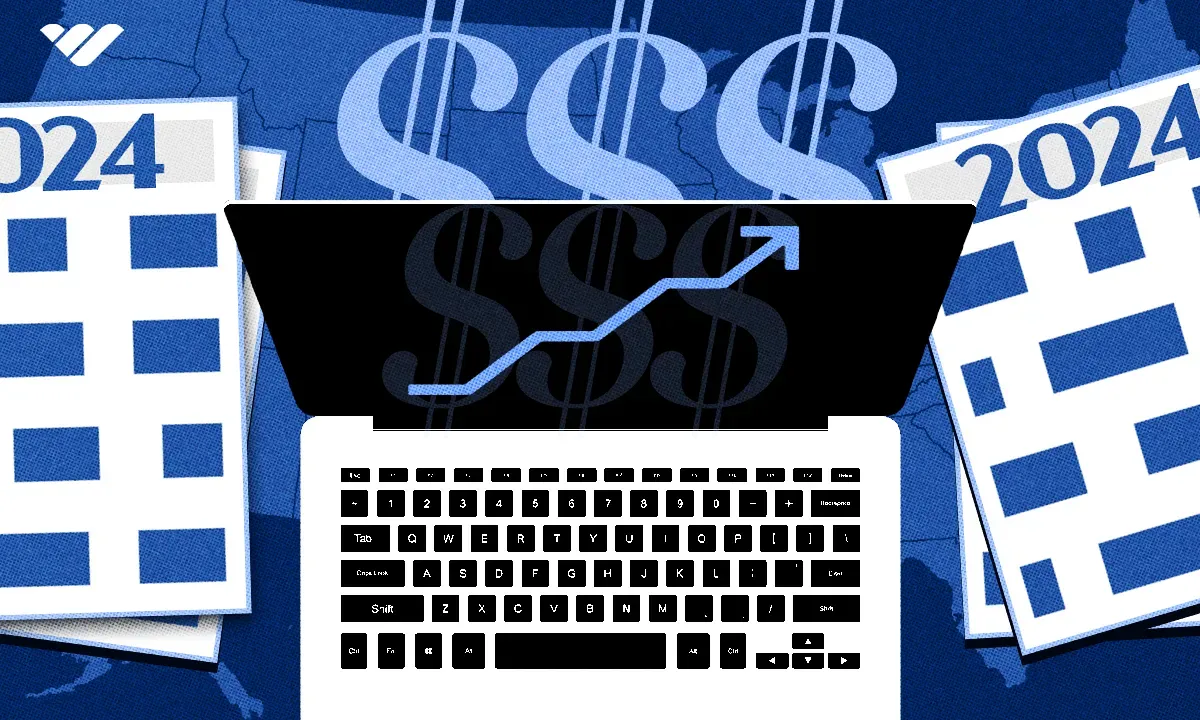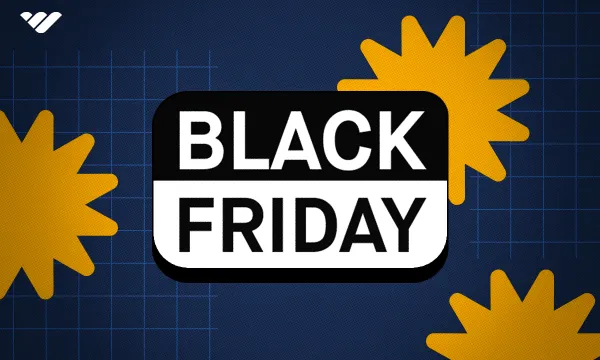If you’re running a website or some sort of online business, you’re probably measuring success in terms of the amount of revenue you generate from it. However, a lot of entrepreneurs overlook the fact that it can often be worth selling their websites and starting another venture rather than continuing to plod along.
That being said, you might also be considering selling your website because of a change in focus or circumstances—other business or life opportunities might be hard to say no to, and you may not have enough time to devote to your website going forward.
Whatever the case and your individual set of circumstances, it’s good to know exactly how to sell your website today. What’s the right approach, what do you need to know beforehand, and where can you list your site? Let’s dive in!
How to Sell Your Website in 8 Steps
1. Research and understand your audience

We’re not talking about the audience of your website here, but rather the sort of person who might purchase your website from you—potential buyers. This can feel like a total shift in tone because you’re all of a sudden trying to figure out the needs of a business rather than those of your consumers. If you don’t do it, though, you’ll be shooting in the dark.
The crowd you’re actually going to sell to will depend on the nature of your website. If it’s a blog, for example, other bloggers might be interested in picking it up, as might content networks or even bigger businesses or brands that operate in the niche. If it’s an ecommerce site, you might be selling more to investors or entrepreneurs.
The best way to research potential buyers in your niche is to delve as deep as you can into it. Read as much online discussion as you can surrounding websites like yours—you’ll soon be able to reinforce your understanding of what others like you face. If you can solve some of the most prevalent problems that websites like yours face, you’ll make your own a lot more attractive to potential buyers.
2. Diversify your web traffic sources
One of the biggest advantages you can give yourself when it comes to website valuation and sale is taking a close look at where your traffic is coming from. It’s completely normal for most business sites to draw a majority of their visits from paid traffic and ads, but you’ll need to go above and beyond here.
Organic traffic is considered more profitable and also more stable when it comes to the longevity of the website—if your site keeps on pulling visitors, a buyer will know that they don’t need to throw away tons of cash on advertising to keep the wheels turning.
On top of the reliability of organic traffic, it also shows buyers that there’s a ton of revenue potential in your site. You may not be doing everything you can to monetize all of this traffic, and a buyer might think that they have the resources or the network to tap all of this potential, boosting the amount of revenue generated by the site per visit.
If you think you’re already well on top of the organic traffic side of things, then make sure to leverage social media and channels such as email newsletters in order to keep visitors coming back.
3. Remove yourself from the equation with automation

Selling websites is like selling just about anything else, in that the vast majority of buyers would like a working product that can get the job done with minimum involvement on their part. Sure, there are exceptions who want to roll up their sleeves and rebuild everything, but by and large website buyers are looking for a site that’s as automated as possible.
This means that you’ll be best served getting your website running itself. Using various processes and even third-party services can take the load off the website owner. If you’re running an ecommerce site, for example, are you handling major parts of the fulfillment process yourself? This is not going to be appealing for buyers, because it means they’ll have to step into the breach and do all of that work once they take over.
So, look at your website through the lens of your own workload. Do you spend a lot of time and effort handling different aspects of your website? Each of those instances is something you need to look at automating, even if that means signing up for third-party services, virtual assistants, and content agencies.
The less the buyer has to do to keep your website running and the less dependent on you they are throughout and after the ownership transition, the more valuable your website is going to appear.
4. Optimize your website
We’re not just talking about SEO here, but it’s a big part of the discussion given how important it’s likely to be to your potential buyers. The fact is, without search engine optimization, it is less valuable because the new owners are going to have to do a ton of work to bring it up to speed. They are likely to think all that work isn’t worth doing.
Optimization ensures that search engines understand your website better and rank it higher, which in turn gets more visitors through the door. That, in turn, leads to more revenue—or, as we’ve discussed previously, more potential for revenue.
You also need to factor in that Google tends to come down hard on sites that aren’t optimized. If your website takes ages to load, lacks authority, and isn’t user-friendly, well, Google just isn’t going to rank you.
So, make sure you’re using a content delivery network and the best possible host provider so your website loads quickly. Additionally, cut down on the number of plugins you’re reliant on, and make sure your website’s CMS is working to maximize performance. If all of these boxes are checked, it’s just a matter of optimizing visibility and improving conversion rates.
5. Remember to optimize your profits as well

This one’s getting a section of its own even though it could fit in the previous one. Making sure your website’s profitability is in a good place is going to help you a lot when selling, even though that’s easier said than done.
Regardless, you should try your best to do everything you can on the advertising front. Test out different ad placements on your website to see what works best, but don’t be afraid to try other avenues as well—different ad networks, creatives, and affiliate offers could take you up a gear, but you need to test them out first.
We’ve mentioned that buyers will often pay for the revenue potential that they see in a website, but if you can get that revenue going yourself and show them a sizable profit, they’ll have to pay you top dollar for your website.
6. Choose a digital marketplace
You could have an incredible website that’s showing a profit with obvious potential but still struggle to sell it. Why? Well, half the battle when it comes to selling something is to actually inform potential buyers that your website is on the market. Digital marketplaces connect buyers and sellers, and if you’ve got a website for sale, you’ll need to pick the marketplace that is most likely to put you in touch with your audience.
As you might imagine, the internet is full of marketplaces of different kinds, including those dedicated to websites. These are well worth exploring; if you do a little research, you should quickly get a feel for which the best in the business are.
However, it’s also worth digging into your niche itself if you’re looking to sell your website. If it’s a blog on options trading, for instance, look at the different groups and communities dedicated to options trading and see who the more influential players there are. You’ll learn lots and likely come into contact with far more potential buyers of your website than you might on a generic or all-purpose website marketplace.

7. Get your reporting sorted
Running a website often starts as a side hustle, and it’s very possible that you didn’t get going with a business plan or any sort of formal documentation. Chances are, you just went ahead and started it, making whatever changes you did on the fly, with reporting provided by whatever platforms you used day-to-day.
When the time comes to sell your website, however, you’re going to need to document things and come up with at least a basic set of financial reports. We’ve mentioned traffic, profit, revenue, and all of that—now you’ll need to put all of those down on spreadsheets to show potential buyers.
First of all, you’ll need a P&L, or profit and loss report. This one does everything it says on the tin; it will be a big boon in showing potential buyers that you’re serious and your site is making money. On top of this, you’re going to back up some of those numbers with Proof of Sales—if you’re selling on some sort of ecommerce platform or pulling in revenue with AdSense, you can pull the report off the relevant platform.
Also make sure to grab reports from Google Analytics and Google Search Console Reports, because you can show buyers hard proof of how much traffic you're getting and what your potential really is. If you’re relying on advertising for traffic, you should also document your ad spend and provide ad reports from whatever ad network you’re using.
8. Establish your website’s valuation
Valuing anything prior to a sale is tricky, and websites are especially so. The general rule for websites is that they tend to sell for 20 or 30 times their monthly revenue, or even 1 to 3 times their annual revenue. If you want to use this sort of estimation, you’ll have to factor in the type of website you have—services tend to value lower, while content and SaaS sites trend to the higher side of the scale.
That being said, you also need to keep in mind what we said before about revenue potential. If your revenues aren’t very high but you’ve got an outstanding amount of organic traffic, buyers will figure that they can ramp up revenue dramatically—so while you won’t be able to capture all of that potential in your sale, you should still be able to list your website well outside of the ranges we just mentioned.
Just as if you were selling your car, you can do some basic research when valuing your site. Check out different marketplaces and listings, and try to find sites with a similar profile or numbers to yours. The prices they’re going for should give you an idea of what your site might be worth.
Don’t forget that selling a website is usually a taxable event. Do your research into your local tax code and how you’ll be affected or, better yet, talk to a tax consultant about the implications.
Pro Tips for Selling Websites
Even if you follow all of the steps we’ve listed above, selling a website isn’t child’s play. Here are a few additional tips and best practices to help you along:
Research successful website sales before listing yours

Selling a website is nothing new, so you’ve got an advantage in that there are lots of successful examples of website sales to learn from. You can find case studies all over the web, and they’re worth a look to understand what sort of sales tactics were used, what information was presented to the public or buyers, and what metrics or analytics the sellers leaned on to get themselves the best price.
Focus on the right information in your listing
Hype and meaningless statistics aren’t going to help you sell a website because, by and large, you’re going to be selling to a marketer of some description. Your buyers are very familiar with marketing and sales tactics, so you’ll be best served cutting right to the chase and focusing on the information that really matters.
The amount of revenue your website may be able to generate, the amount of influence in its niche, your biggest sources of traffic, the number of unique visitors you get, and the revenue earned per visitor—these are the sorts of data points that potential buyers want to see, so quantify them as best as you’re able and leverage them in your pitch.
Monetize your website before listing it
We’ve gently touched on this one already, but it bears repeating because of how much of an effect it has on your sales price. It is possible to sell a website based on its potential, but you’re going to have a much better chance of recouping real value from your site if you’re able to realize some of that potential.
Look at it from a buyer’s point of view. A lot of the time, getting a good deal on a website means paying a low, low price for a website with a lot of organic traffic. They can then plug in the missing monetization features and, hey presto, it’s ROI in no time at all. You, on the other hand, want to charge a higher price by offering a site that they can take over and earn from passively.
Keep your sales pitch realistic
When you research your audience, you should develop an understanding of exactly why they want to buy your website. As a rule, the motivations here tend to be long-term and very specific—they’re not buying your website in the hope that it’s going to be the next $50 billion tech giant.
So, tailor your pitch to what your buyers want, and lay out realistic expectations for what your website could be based on current numbers and trajectory. Lay out all of the data, include a positive but realistic description of your website when you list it, and think long-term about whatever claims you make as to your site’s potential.
Whop Can Help You Sell Your Website

There’s lots to do when it comes to selling your website, and in several of the areas we highlighted above, the power of community might be able to help you the quickest. SaaS communities can put you right in the mix with other SaaS website owners and stakeholders, allowing you to understand potential buyers as well as industry issues firsthand; ecommerce groups can do the same if that’s more your thing.
Groups on Whop can help you no matter what niche your site operates in; even if you don’t find an exact match, you can learn all about sales and marketing. Mentoring, workshops, and courses help you get that pitch exactly right and close the deal without feeling like you’ve left anything on the table.
You can even create a whop of your own and use Whop’s digital marketplace to list your website or any other digital product you’ve got going. So, sell your site and then think about starting your next venture on Whop.





